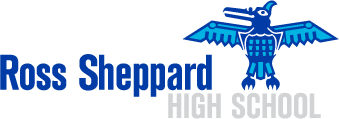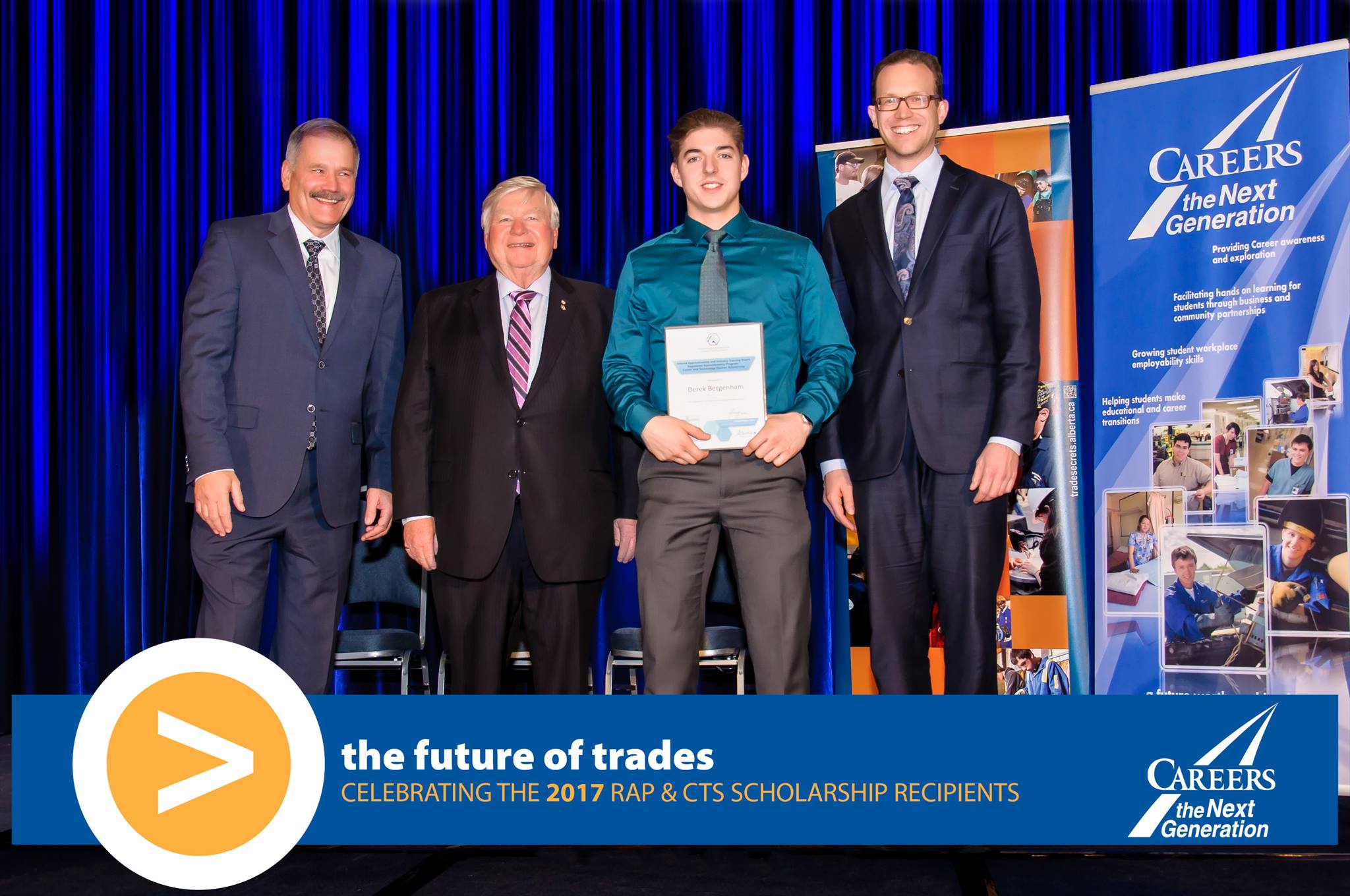Off-Campus Education
|
Some of the best learning experiences happen outside of the classroom. Off-campus education programs allow you to step outside of your high school environment to gain knowledge and skills in the world of work. You'll explore potential career options, build a portfolio for future employment, and acquire credible references to be used for post secondary and job applications. It's never too early to start thinking about your future! More about off-campus ed...Find work that interests you! Create a professional résumé and polish your interview skills. Receive ongoing support and encouragement as you work towards your goals. Gain confidence in your own abilities and be better prepared to make wise career choices. Work part-time after school or on weekends in a variety of job placements. Explore career choices and develop skills working with others. In the summer of 2012, Ross Sheppard High School placed 10 students in the Health Services Internship program, continuing to be a leader among high schools in that area. In addition, currently Ross Sheppard has 300 students registered in Work Experience. Students in the program explore various career opportunities, develop valuable employability skills, and gain self confidence. What is it?Off-Campus Education is an experiential method of learning that integrates a student’s classroom studies with recognized on-the-job work experiences. Off-Campus Education programs are based on the belief that educators can enhance student learning experiences by bringing the community into the school and by placing students out into the community. Work experience 15, 25, and 35 are three separate courses intended to be appropriate for students at the grade 10, 11 or 12 levels respectively. Each course is time-based (i.e. 25 hours per credit) and is available with variable credit options: Work Experience 15 3 - 10 credits Work Experience 25 3 - 10 credits Work Experience 35 3 - 10 credits Work Experience is under the cooperative supervision of an off-campus coordinator and the employer’s onsite representative. HCS 3000 – Workplace Safety Systems is a prerequisite course for the first off-campus education program taken by a student. It is a one-credit module of Career & Technology Studies acquired before any work experience credits may be given. Work Stations Appropriate work stations are established in the community. These work sites are actively interested in providing a positive, safe and caring learning experience for the student and in allowing progressive development of occupation related knowledge and skills. Student Benefits Off-Campus Education programs use a set of planned educational experiences designed to enable students to acquire knowledge, skills and attitudes related to work and other life roles through their participation in out-of-class study. There are a variety of off-campus education courses and programs available at Ross Sheppard High School. These include work study, work experience, the Registered Apprenticeship Program and Career Internship. Work Experience Coordinator For additional information on Off-Campus Education programs, please contact Mr. Lynagh in the Off-Campus Education Office. REGISTERED APPRENTICESHIP PROGRAM (RAP)How does getting paid while you go to school sound? RAP means getting a head start on a career in the trades.You'll receive on-the-job training under a journeyman supervisor as you earn credits towards your high school diploma, hours towards your registered apprenticeship, and a competitive wage on top of all that. Currently Ross Sheppard has 16 students registered in RAP, working as carpenters, cooks, eletricians, automotive service technicians, heavy equipment technicians, and welders Now is a good time to be looking for a career in the skilled trades. The Conference Board of Canada estimates there will be a shortage of about one million workers in the trades and related occupations within the next 20 years. Employers in many industries and regions raise concerns about shortages of skilled workers in the trades. The "baby boomer" generation is or will be retiring over the next few years and will need to be replaced. Industries that rely on apprenticeship training - including construction, transportation, manufacturing and services - have been growing and need new workers. These jobs are highly skilled and pay well. Earn while you learn with RAP! Once you are a journeyperson, you may choose to practice in your trade or use your knowledge and skills to pursue other careers such as: • Engineer Source: www.tradesecrets.gov.ab.ca Interested in applying for RAP? If you're thinking about applying for RAP, you should have an interest in working with your hands and a willingness to learn new skills. Our employers are looking for students that are reliable, dedicated, and hard working. You can better your chances of getting a RAP placement by attending and passing all of your courses. Make sure you research various trade industries before you start so that you can make an informed decision. Visit the Alberta Apprenticeship and Industry Training website to find relevant information on all 50 trades in Alberta. More information is available by contacting Mr. Lynagh. |


